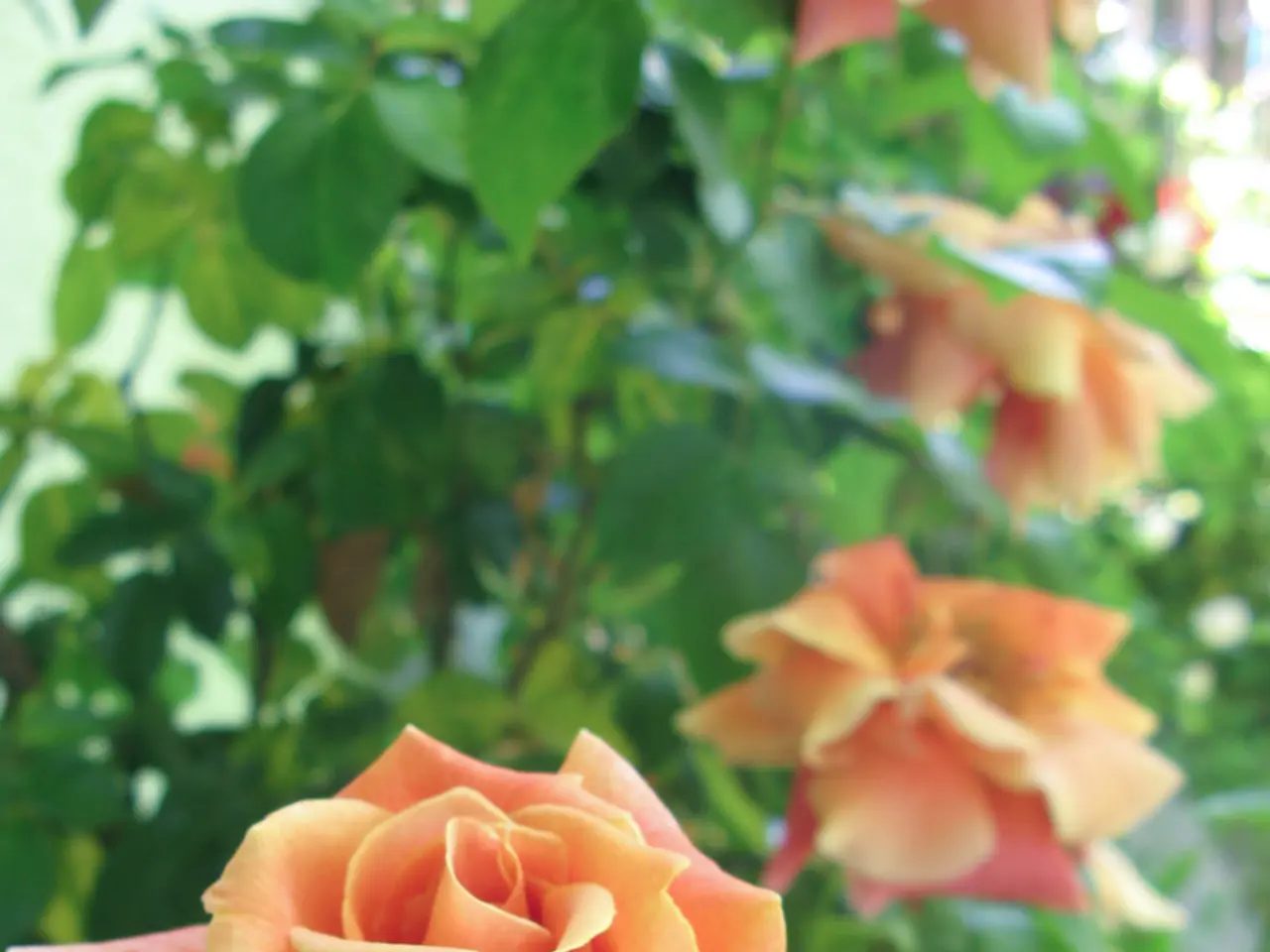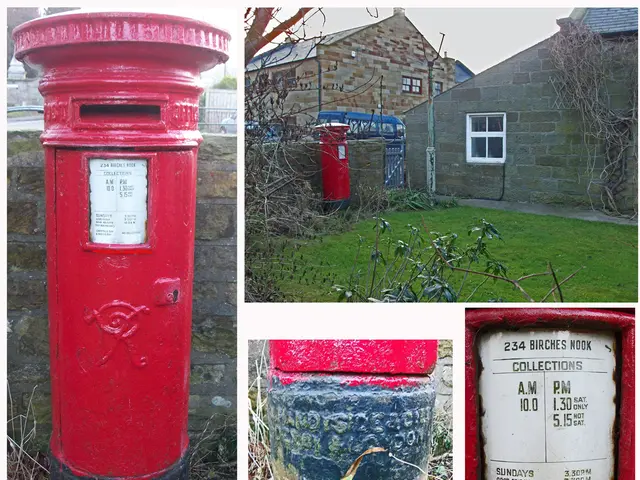Preparing the ground for roses: a comprehensive walkthrough
In the quest for a flourishing rose garden, the soil plays a pivotal role. The ideal soil for roses is a well-drained and moist loam, a mix of sand, silt or clay, and organic matter. This soil type provides the perfect balance for essential nutrients such as nitrogen, phosphorus, and potassium, which thrive in the pH range of 6.0-7.0.
Maintaining the optimal pH level is crucial for rose plants. Deviations from this range can lead to nutrient deficiencies, stunted growth, and diseases. To determine the current pH level of your rose soil, use a pH meter or a soil test kit. The optimal pH level for rose plants is 6.0-7.0.
If your soil is too acidic, consider adding lime to raise the pH. On the other hand, if the soil is too alkaline, add sulfur or aluminum sulfate to lower the pH. Incorporating organic matter such as compost, well-rotted leaves, bark, or manure can help buffer the soil pH, ensuring it remains within the optimal range.
Organic matter not only helps regulate the pH but also enriches the soil, providing essential nutrients and improving its structure. Mixing in organic compost, dried leaf mould, and manure will further amend and nourish the soil. If your loam soil contains more clay, add peat moss to enrich it.
For better drainage and airiness, add 1/3 cup of sharp sand and topsoil to the potting mix. If you're preparing a potting mix, consider adding 1/4 cup of sulphur and 1/4 cup of treble superphosphate.
In addition to these traditional methods, the recommendations for soil preparation for rose gardens in Germany emphasise enriching the soil with natural mineral substances like rock flour (UrgesteinsMehl). This provides essential minerals and trace elements, improves soil structure, and supports humus formation. Apply 200g/m² initially and then 100g/m² annually, preferably combined with effective microorganisms for best results.
Lastly, planting cover crops or green manures such as clover or rye can improve soil structure and contribute to a balanced pH level. Regularly monitoring the soil pH and making additional adjustments as needed will ensure your rose garden thrives.
Read also:
- Inadequate supply of accessible housing overlooks London's disabled community
- Strange discovery in EU: Rabbits found with unusual appendages resembling tentacles on their heads
- Duration of a Travelling Blood Clot: Time Scale Explained
- Fainting versus Seizures: Overlaps, Distinctions, and Proper Responses








